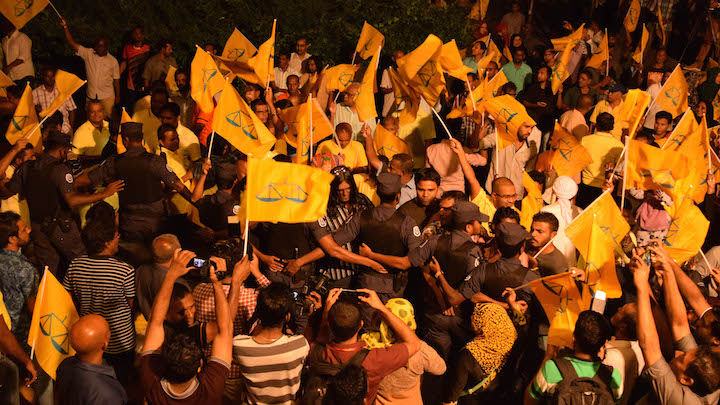Nearly half of MDP’s members removed from its registry
The elections commission has struck off nearly half of the MDP’s members from its registry after the parliament approved a law requiring all political party members to submit their fingerprint records

25 Oct 2016, 09:00
The elections commission has struck off nearly half of the Maldivian Democratic Party’s members from its registry after the parliament approved a law requiring all political party members to submit their fingerprint records.
Some 18,803 members were removed, reducing the main opposition party’s membership to 27,805 members.
Other parties affected by the law include the Dhivehi Rayyithunge Party, the Jumhooree Party and the Adhaalath Party. The ruling Progressive Party of the Maldives, which emerged as a breakaway faction of the DRP in 2011, will not be affected.
The PPM, with 37,633 members, is now the largest political party in the country.
Become a member
Get full access to our archive and personalise your experience.
Already a member?
Discussion
No comments yet. Be the first to share your thoughts!
No comments yet. Be the first to join the conversation!
Join the Conversation
Sign in to share your thoughts under an alias and take part in the discussion. Independent journalism thrives on open, respectful debate — your voice matters.




